Most people do not know about an anganwadi worker’s responsibilities, they think this is a voluntary service that can be compensated with an honorarium. I share my story here to tell you about my work, my goals and my experiences as an anganwadi worker. I have been an anganwadi worker since 2002 and I recently completed 20 years in this role. Although my children were 12 and 9 years old respectively when I joined, I faced a lot of trouble managing my household responsibilities, ensuring they are cared for, picked up from school and fed while I went out to work.
I got into this profession due to my passion for social work, but our efforts are not recognised by the government. I am paid only 8500 rupees per month. Fortunately, I am not the sole earning member like many of my colleagues are, it has not been that difficult for me. The helper who I work with is paid half my salary. At least 80% of us are unable to meet ends with the honorarium we are paid as we are not considered employees but volunteers. Many teach, cook or do domestic work as many are single women. I stitched and altered clothes in my area to supplement my income.
The anganwadi centre for daycare services is open from 1030 am to 2 pm, after which we conduct daily visits to meet parents and children in the allocated area. Maharashtra alone has more than one lakh anganwadis and India overall has more than 13 lakhs, all over the country making them one of the largest public service providers apart from ASHA workers and other public sector employees.
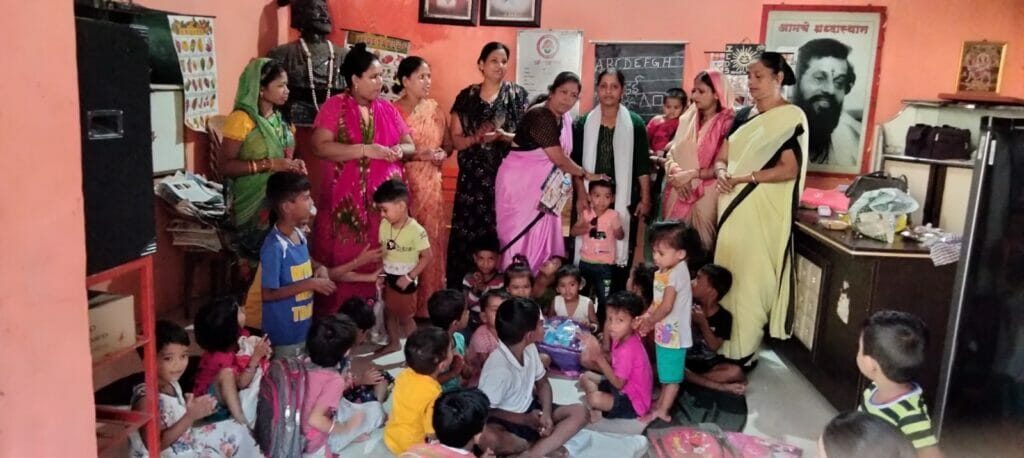
Read more: How community health workers conduct annual TB, leprosy survey
Prenatal and postnatal care
An integral part of our work is providing continuous guidance to pregnant women, the care they need to take during pregnancy regarding diet, medicines along with ASHA workers. We maintain a log of all the pregnant women in our jurisdiction once they register at the anganwadi by ensuring that they receive care till 1000 days when the child turns two years old. We also conduct Community Based Activities (CBA) for which the government gives us 250 rupees per programme. We end up paying from our pockets to arrange for these programmes as we have to prepare food at home and take it for the programme.
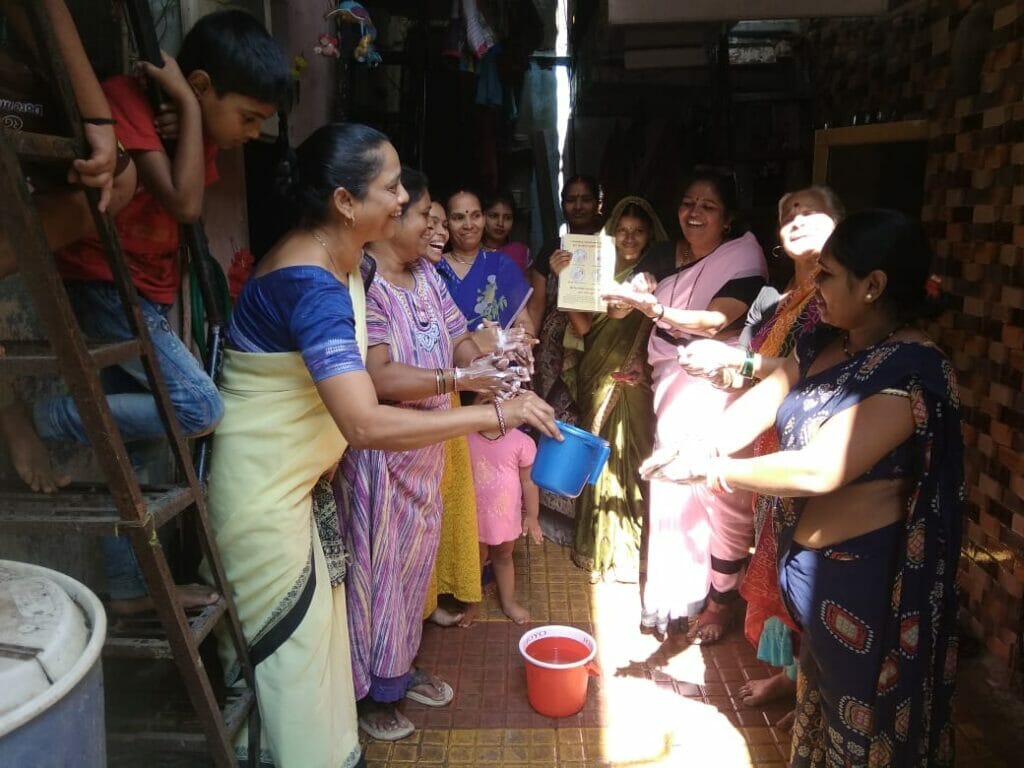
Our work doesn’t end there, we keep visiting their house regularly to assist them until childbirth. And then we start supporting the newborn. We explain the importance of colostrum and the importance of breastfeeding post childbirth. We emphasise the need for a proper diet after the child turns six months old. When the child turns three we conduct ceremonies for their induction into the anganwadi centre.
Read more: NFHS-5 shows progress for sanitation in Mumbai, but do ground realities bear this out?
Childcare responsibilities of the anganwadi worker
The most important part of our work is ensuring children’s well-being at the centre. We check the weight and height of the baby from newborn to six years of age. We pay special attention to those kids whose weight and height is poor. The government doesn’t give such kids anything extra except the Take Home Ration (THR) powder for kids in the 6 months to 3 years age group in cities. We feed the kids from 3-6 years of age hot freshly cooked food like upma, pulav and dry food everyday. Dry food consists of food like rajgira laddoos, chivda or murmura.
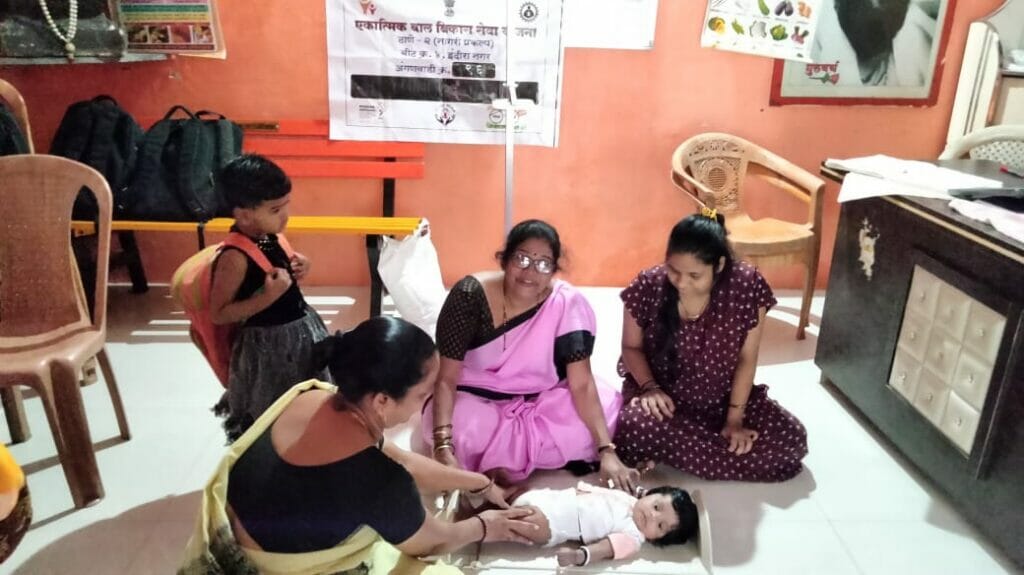
We accompany parents with undernourished children to the hospital for check ups. As per the doctor’s prescription, we help the parents to take better care of the child. We also go on vaccination duty to ensure that children are immunised.
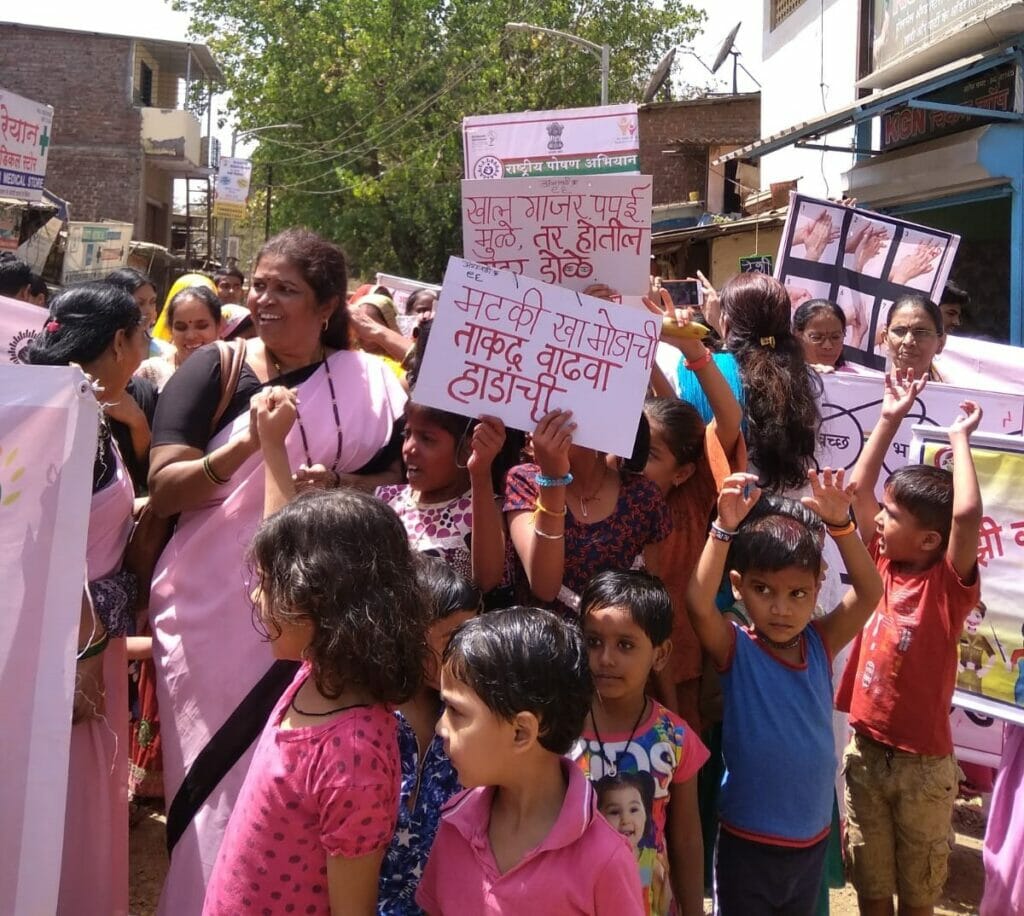
As most children leave the anganwadi to enrol in kindergartens, the anganwadi has children less than a year old. Many children whose parents drop them off for short periods of time before or after school, take the food provided at the centre. We have 50 children at the anganwadi where I work.
Multiple responsibilities and poor pay
All these responsibilities lie on me as the anganwadi worker and the helper who also assists me. Enumerating parents and children into the anganwadi ecosystem is difficult as we conduct surveys to induct children only once a year after which admissions are closed. We also provide them information regarding family planning. This means a packed day of work which doesn’t end even when I’m home.
Moreover, many refuse to admit their children after the dry ration packets which were briefly introduced during the COVID-19 pandemic were stopped. Due to this, we have to continuously pay visits to their houses to give them THR powder packets. It contains wheat powder, sugar, peanut powder and oil, essential for quick nutritional needs and is an instant source of nutrition.
It is our responsibility to ensure that the scheme’s benefits reach the 1700 people who have been enumerated under the surveys I have conducted. There should be one anganwadi for 1000 people so our union has demanded more anganwadis.
Anganwadi workers and helpers are provided only 5000 rupees with many conditions to manage the rent for the centre. How can we manage rent, bills in this amount? Due to this, we have to set up temporary centres in a beneficiary’s home, or a political party or a social organisation’s office in the area. We have to manage all the activities including daycare services within this amount. Many times, I spend my own money on activities.
Impact of digitisation and privatisation
After spending a tiring day at work, we come home to complete bureaucratic work like filling up forms online and offline. I maintain all these files and keep them in my house since I don’t have an office. The baby kit packed in large suitcases is also kept at my small house. Online work including registrations happens on the Poshan tracker app, with input options only in English. This takes a lot of time to fill as I cannot type in English easily. We have to tackle so much work at the centre and later as well.
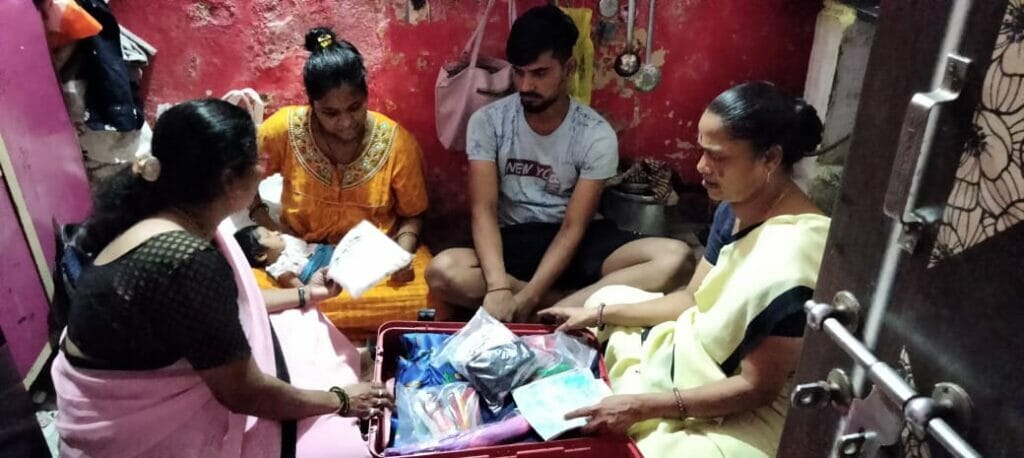
I have read that there are proposals for handing over our work to NGOs. It fills me with worry that we might lose our already low paying jobs. We risked our lives during the pandemic but our strikes and protests are met with indifference. Still I have not given up hope. I wish that our contribution to society will be recognised. I have been able to fight for my rights for better pay, social security and better work conditions only because I am part of a union. Our petitions and demands are continually presented through the union. I am hopeful that my story will reach you and you will also join our cause.
(With writing asssistance from Lalita T, Engagement Associate at Citizen Matters, Mumbai.)